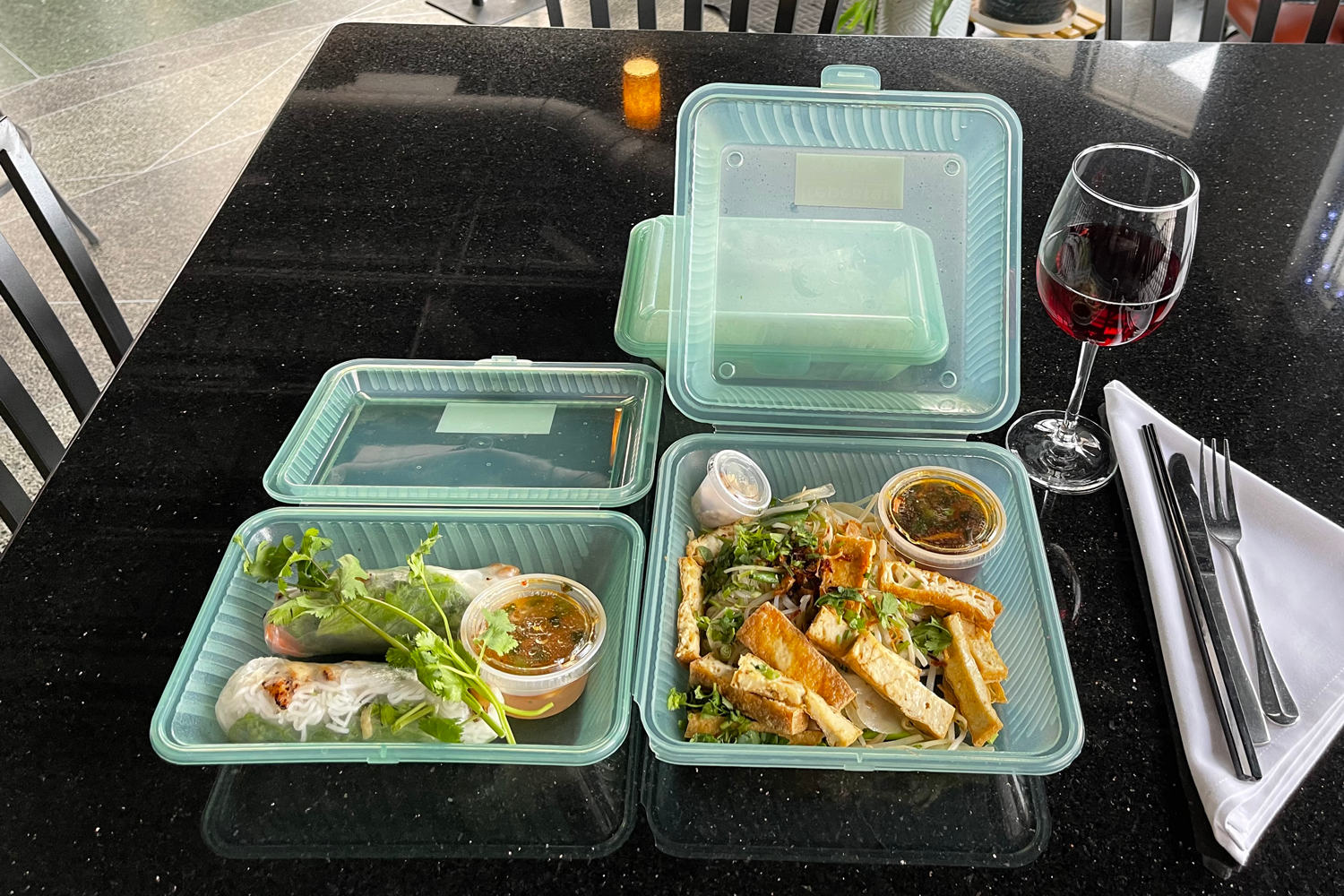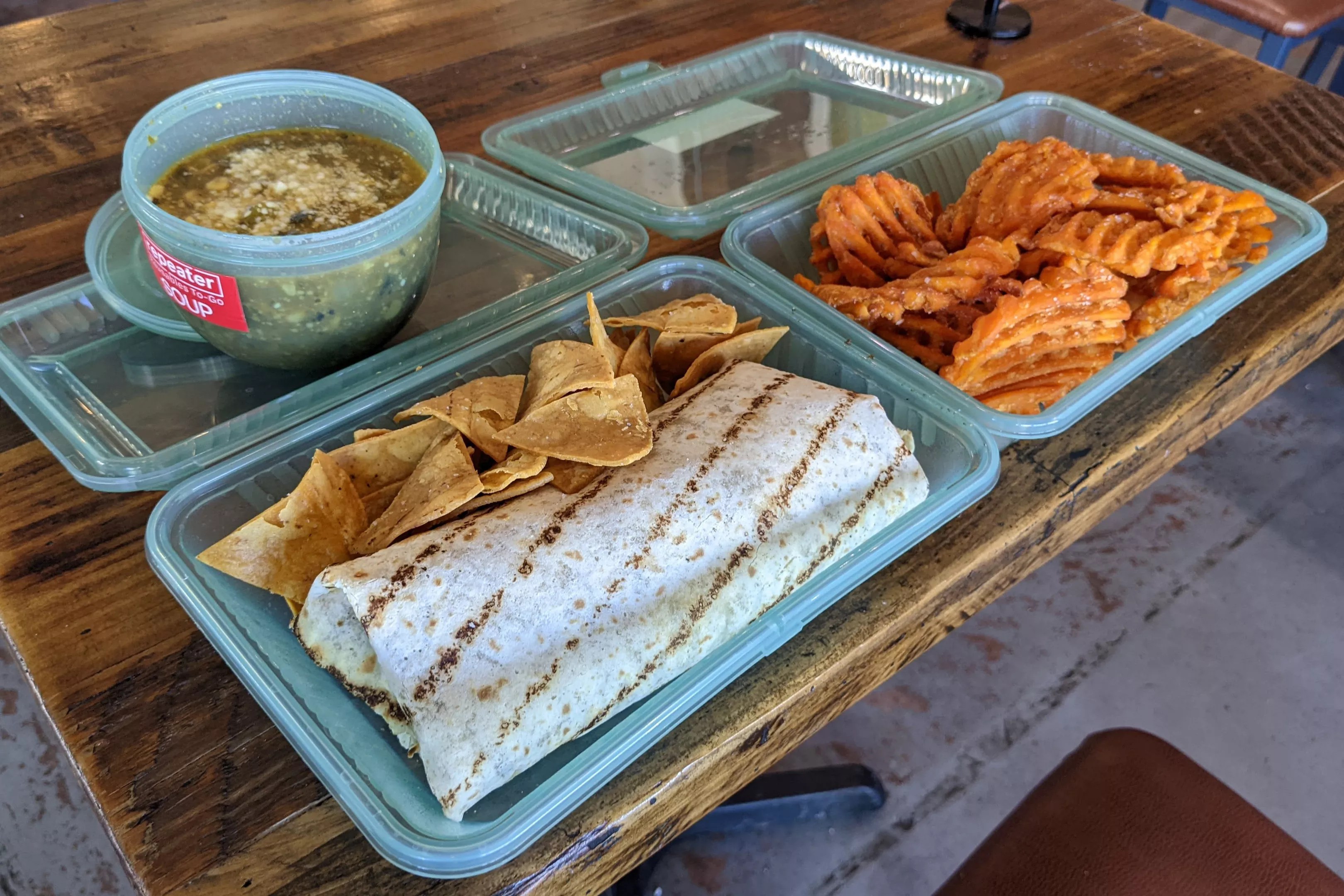
Repeater

Audio By Carbonatix
As interest in environmental sustainability in the restaurant industry grows, Repeater: Reusables To-Go has joined the fight to assist Denver restaurants that are going green. To do so, co-founders Chris Todd and Ashwin Ramdas set out together on a mission “to cut out single-use packaging waste from the food industry, specifically starting with restaurants,” as Ramdas puts it.
The result is a reusable container that can be used by restaurants for delivery and to-go orders, and which is ultimately returned to Repeater for thorough sanitization before once again being distributed back to restaurants – rinse and repeat.
Customers looking to participate in the eco-friendly practice can order food from partnering restaurants. Currently there are sixteen in Boulder and twelve in Denver, including Just BE Kitchen, Sullivan Scrap Kitchen, Restaurant Olivia, Chook Charcoal Chicken, Brider, Dimestore Delibar and more. The full list can be found on Repeater’s website and app, which is available for iPhones and Androids. When ordering, customers must request that their food be packaged in Repeater wear and then return the containers, which Ramdas and Todd have made a simple process.
“We have drop-off bins around the city – at five of our partner restaurants, currently, and then we have another one at one of our partner retailers called Home Fill,” Ramdas explains. “Essentially, you can return those containers to one of those drop-off points, but we also just started a pick-up-at-your-door service.”

Repeater provides local restaurants with reusable and eco-friendly to-go wear.
Photo courtesy of Repeater
The ease of the service is a top priority. “Our goal, me and Chris, we are consumers of takeout, so we want to make this as convenient as possible for customers to do,” Ramdas adds.
The next step in the process is cleaning the used containers.
“We have a space in a commercial kitchen, so we have access to washing facilities that are up to health code,” Todd says. “It’s really a little more involved and a little more detailed than typical restaurant cleaning, I would say. You can feel more confident eating out of our containers than you can eating off most plates.”
Repeater came about after Todd worked “pretty much every position” in the restaurant industry and as a sustainability consultant. “Packaging was something that we saw pretty early on needed a solution. There’s really nothing out there,” he explains. “Compostables are garbage at the end of the day and plastics are cheap, but we all know the issues that reside within that paradigm.”

Repeater uses industrial tools to sanitize their containers between each use.
Photo courtesy of Repeater
He then turned to Ramdas, who formerly owned a zero-waste grocery delivery service, to develop reusable to-go wear for restaurants in the area. “We both love eating takeout, and we just can’t reconcile that with the amount of waste it creates,” Ramdas says. “We didn’t see anyone doing [anything about it], and we knew we could do it, so we wanted to do something about it.”
Repeater’s containers are a hard propylene plastic rated for a thousand uses, Ramdas notes, adding that not only are they more sustainable from a waste perspective than traditional to-go wear, but also from greenhouse-gas and water-use perspectives as well, after just five uses.
Perhaps the best part of the equation is that those utilizing the service are actually participating, with more than 98 percent of containers being returned to Repeater after use. Now Todd and Ramdas are looking forward to adding more names to their list of partners.
For more information about Repeater: Reusables To-Go, visit eatrepeater.com.